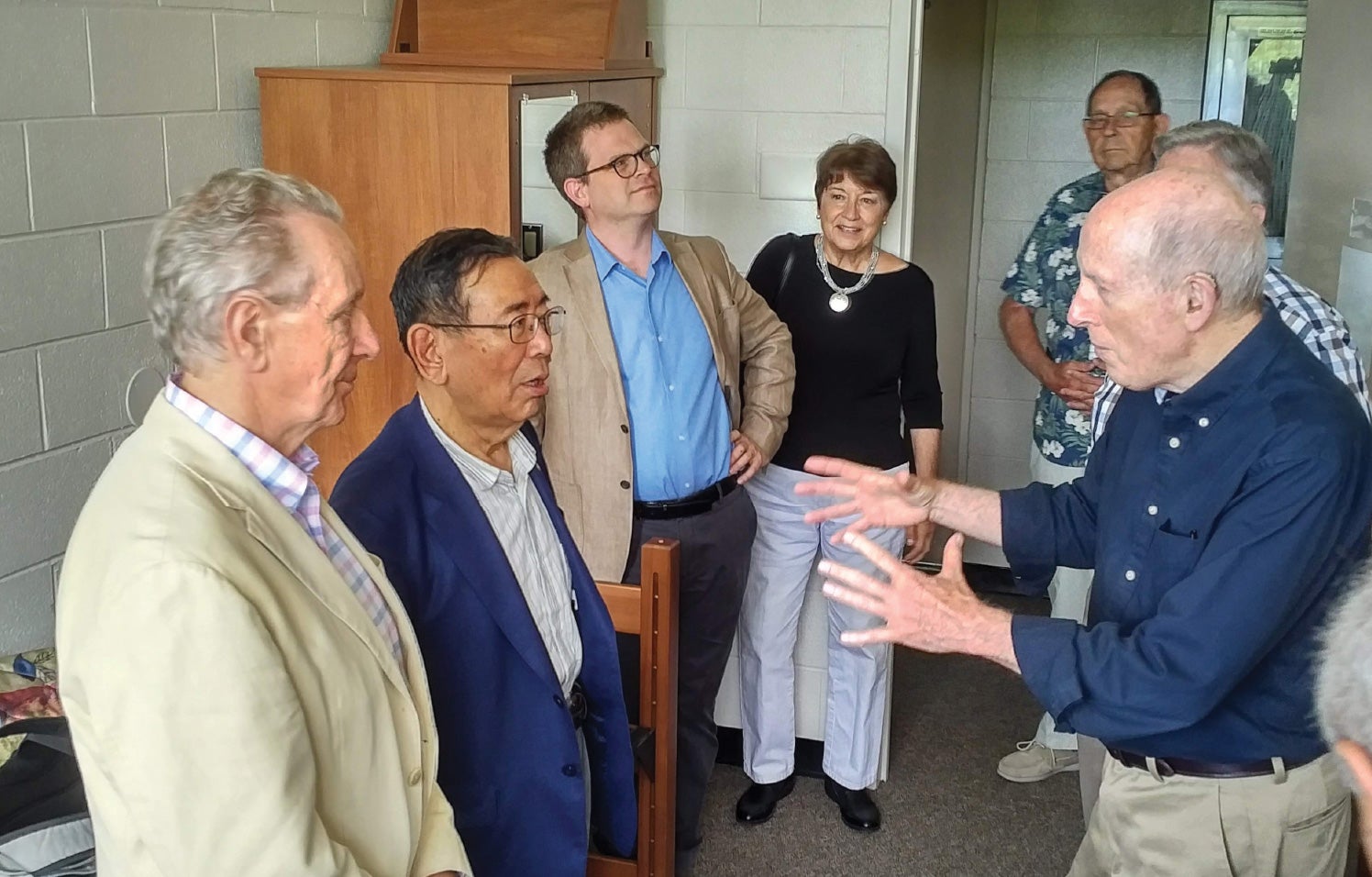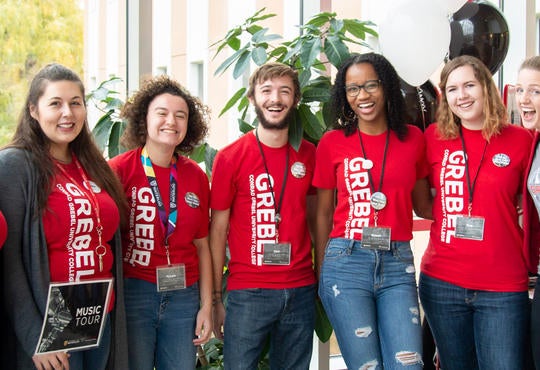 A few months ago, I received an unexpected request from far away. King Horiguchi, an alumnus who lived in residence from 1964 to 1968, wrote from Japan to tell us that he was coming to Toronto to attend the Rotary International convention with his daughter. While in Canada, he wanted to visit Grebel and connect with friends he had made over 50 years ago.
A few months ago, I received an unexpected request from far away. King Horiguchi, an alumnus who lived in residence from 1964 to 1968, wrote from Japan to tell us that he was coming to Toronto to attend the Rotary International convention with his daughter. While in Canada, he wanted to visit Grebel and connect with friends he had made over 50 years ago.
While living at Grebel, King completed a PhD in Chemical Engineering. His thesis was titled “Effect of Surface Heterogeneity on Surface Migration in Microporous Solids,” and is still held in the University of Waterloo library. Returning to Japan in 1969, he worked for his father’s company, Kansan Oxygen.
We reached out to 1960s-era alumni and scheduled an impromptu reunion one afternoon in June. The guests included Eric Friesen, King’s roommate from ’64, who made the trip from Kingston. King presented a slideshow that included photographs from his years at Grebel, a short history of his family (dating back to the year 1333) and their business in Japan, and evidence of his ongoing connections to his friends from Grebel, in the form of correspondence and Christmas cards from Canada. He also shared some of what he had learned about Mennonites during his time here, noting that Mennonites are “Christian,” “Protestant,” and “Pacifist.”
When he finished the slideshow, King asked if we could all sing “Four Strong Winds,” a folk song by Ian Tyson, and one of the biggest country music hits of 1964. Fred Martin found a guitar, and we all sang the bittersweet lyrics: “For the good times are all gone, and I’m bound for moving on. I’ll look for you if I’m ever back this way.” It was a beguiling moment.

We found King and Eric’s old residence room and toured the College. In the chapel, some in the group began reciting—with affection—a commencement address they remembered from President J. Winfield Fretz. (Apparently, Fretz liked the speech so much that he delivered it more than once over the years, which lodged it in student memories.) In the speech, Fretz used the irregular shapes of the fieldstones in the chapel walls as a metaphor for Grebel’s community: The stones are different, but they fit together into a larger whole. Every stone belongs and has its place.
One of Grebel’s great gifts is the sense of belonging and friendship that arises among each generation of students. King’s visit demonstrates that belonging persists, and friendship lingers, in our alumni—even after five decades, and across continents and oceans.

Left to right: Miriam Thomson (BA 1967), Ted Roberts (1967), Nancy Naoko (King’s daughter), Chris Thomson (BA 1964), King Horiguchi (PhD 1967), Ernie Regehr (BA 1968), Marcus Shantz, John Hildebrand (BASC 1964), John Rempel (BA 1966), Eric Friesen (BA 1967), Fred W. Martin.






